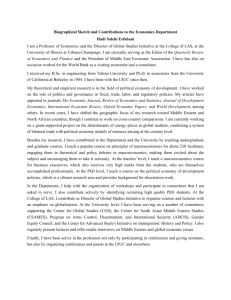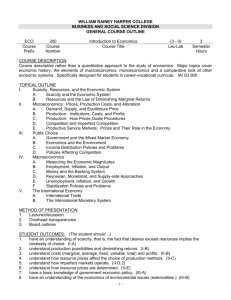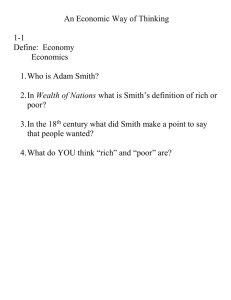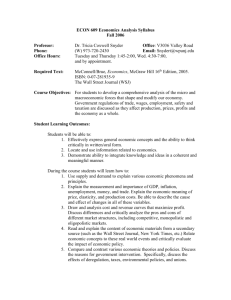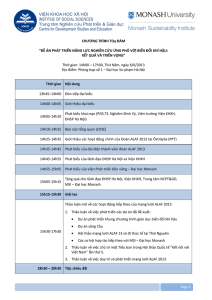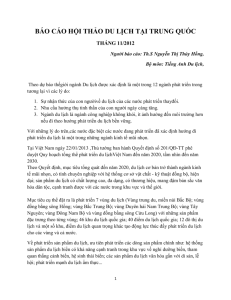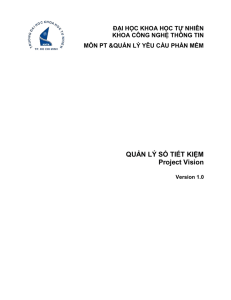Basic economics
advertisement
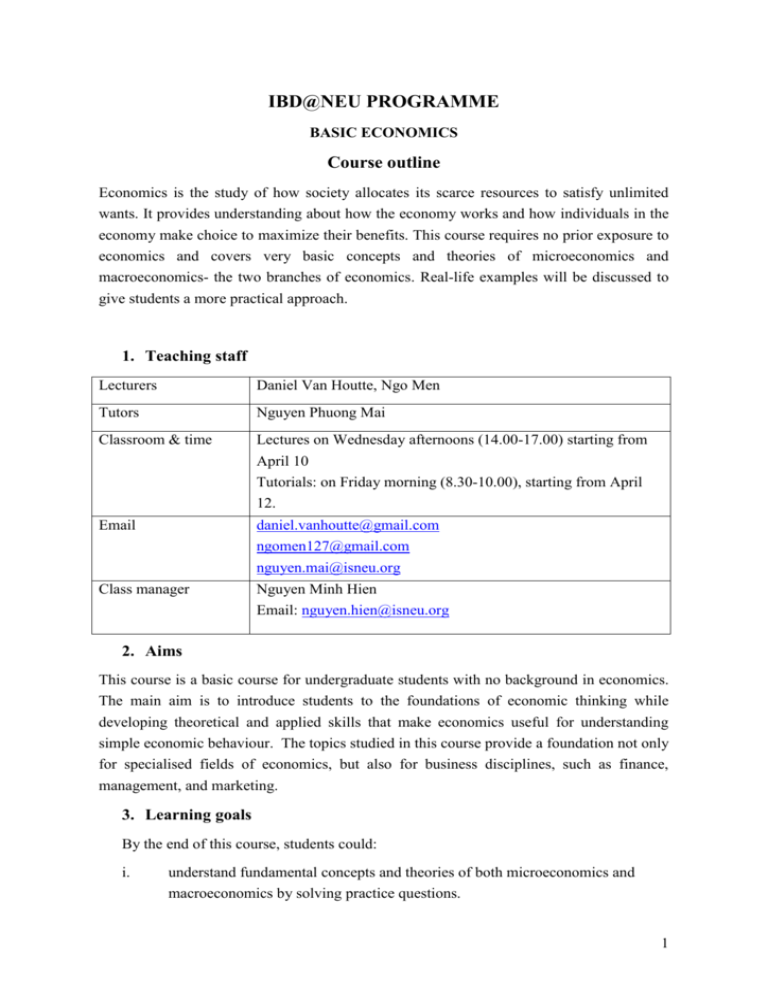
IBD@NEU PROGRAMME BASIC ECONOMICS Course outline Economics is the study of how society allocates its scarce resources to satisfy unlimited wants. It provides understanding about how the economy works and how individuals in the economy make choice to maximize their benefits. This course requires no prior exposure to economics and covers very basic concepts and theories of microeconomics and macroeconomics- the two branches of economics. Real-life examples will be discussed to give students a more practical approach. 1. Teaching staff Lecturers Daniel Van Houtte, Ngo Men Tutors Nguyen Phuong Mai Classroom & time Lectures on Wednesday afternoons (14.00-17.00) starting from April 10 Tutorials: on Friday morning (8.30-10.00), starting from April 12. Email daniel.vanhoutte@gmail.com ngomen127@gmail.com nguyen.mai@isneu.org Class manager Nguyen Minh Hien Email: nguyen.hien@isneu.org 2. Aims This course is a basic course for undergraduate students with no background in economics. The main aim is to introduce students to the foundations of economic thinking while developing theoretical and applied skills that make economics useful for understanding simple economic behaviour. The topics studied in this course provide a foundation not only for specialised fields of economics, but also for business disciplines, such as finance, management, and marketing. 3. Learning goals By the end of this course, students could: i. understand fundamental concepts and theories of both microeconomics and macroeconomics by solving practice questions. 1 ii. use these theories and concepts to explain some simple economic behavior and issues happening in real life. iii. develop their critical thinking skills and problem solving skills. 4. Assessment A final exam will be held in the end of the course. Exam date will be announced later. A pass is obtained by completing at least 50% of the final exam and attending at least 70% of the lectures and tutorials. 5. Recommended textbook N.G. Mankiw, Principles of Economics, 5th edition, 2008 David Begg, Stanley Fischer, Rudiger Dornbusch, Economics, 7th edition, McGraw-Hill Education, 2003. Vietnamese: 1. http://www.vneconomy.vn (Thời báo kinh tế VN) 2. http:// www.gso.gov.vn (Tổng Cục Thống Kê) 3. http:// www.vnexpress.net And Ministerial websites 1. http://www.sbv.gov.vn/ (Ngân Hàng Nhà Nước VN) http://www.vnbaorg.info/ 2. http:// www.moit.gov.vn (Bộ Công Thương) 3. http:// www.mof.gov.vn (Bộ Tài Chính) 4. http:// www.mard.gov.vn (Bộ Nông Nghiệp và Phát Triển Nông Thôn) English: 1. http:// www.worldbank.org (Ngân Hàng Thế Giới) 2. http:// www.UNDP.org (Chương trình Phát Triển Liên Hiệp Quốc) 3. http:// www.IMF.org (Quỹ Tiền Tệ Thế Giới) 4. http:// www.ADB.org (Ngân Hàng Phát triển Châu Á) 2 6. Week-by-Week Topic Guide (Lectures) WEEK DATES TOPIC(S) READINGS FROM MANKIW’S TEXTBOOK 1 April 8 Introduction to economics Chapter 1, 2, 2 April 15 Demand & Supply Chapter 3, 4, 3 April 22 Elasticity Chapter 5 4 May 6 Production and costs Chapter 13 5 May 13 Firms in competitive markets Chapter 14, Chapter 15 6 May 20 Monopoly Science of Macroeconomics 7 May 27 Measuring a Nation’s Income Introduction to Macroeconomics Chapter 22 Measuring the Cost of Living 8 Jun 3 9 Jun 10 10 Jun 17 11 12 Jul 24 Chapter 23, 26 Unemployment and its Natural Rate The Monetary System Chapter 27 Open-economy macroeconomics:Basic concepts Chapter 29 Aggregate Demand and Aggregate Supply Chapter 31 Aggregate Demand and Aggregate Supply Chapter 31 (cont’) The Monetary and Fiscal policy : An Introduction Chapter 32 Jul 1 Revision Jul 8 Final exam 3


